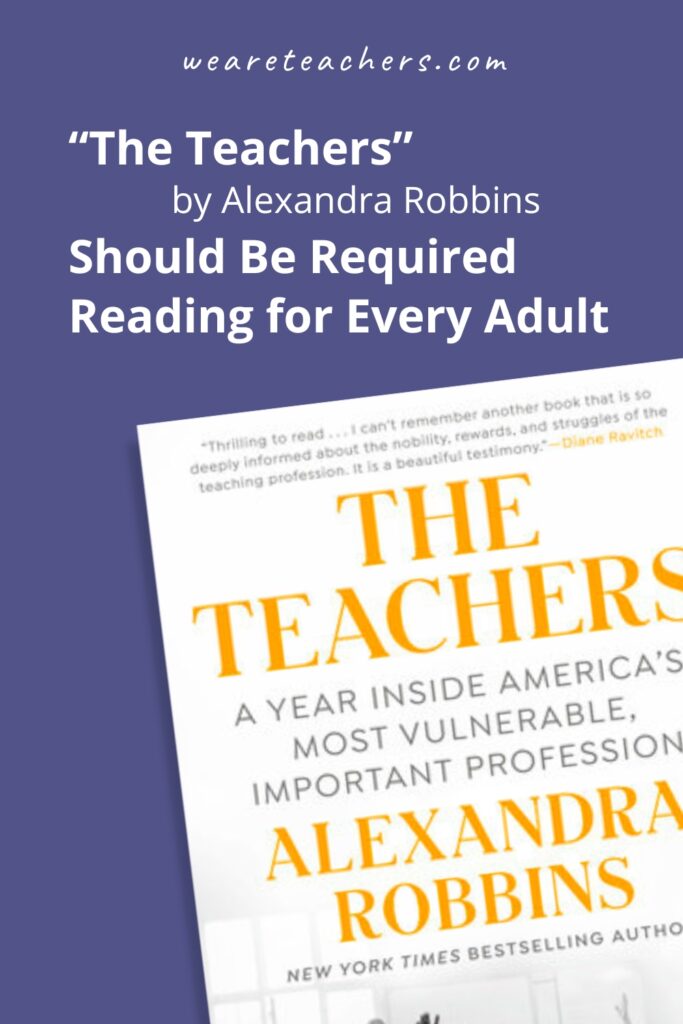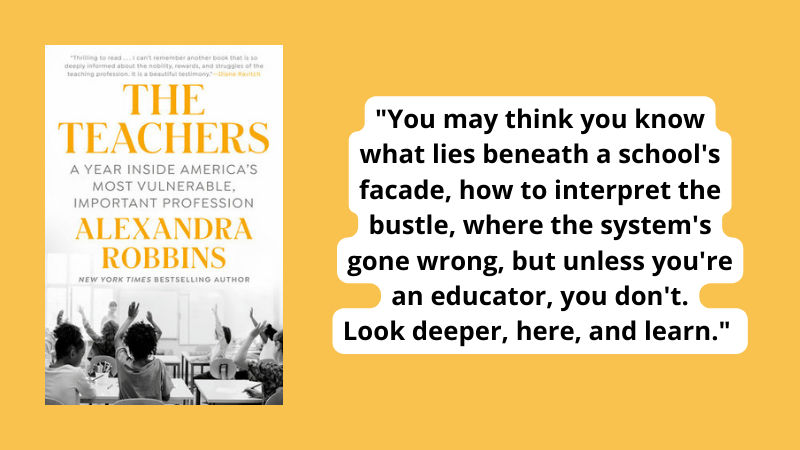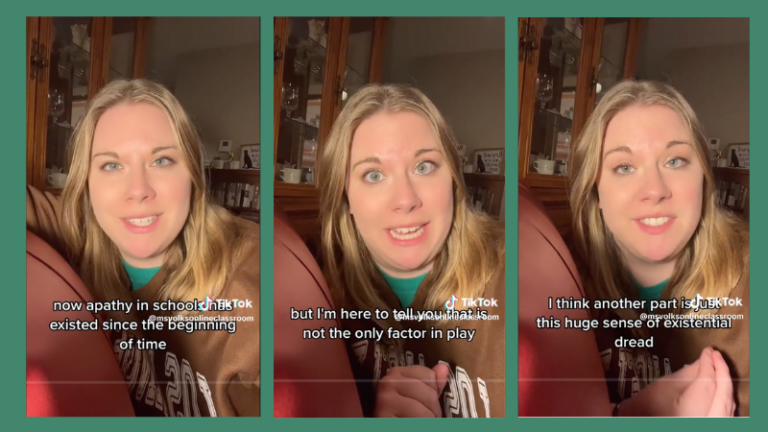I’ll be honest, I was worried when I picked up a copy of The Teachers: A Year Inside America’s Most Vulnerable, Important Profession, knowing it was written by someone who hasn’t taught full-time. Yes, Alexandra Robbins is an award-winning author, investigative reporter, and speaker. Yes, she’s written five New York Times bestsellers.
But would she “get” us?
Would she understand the whiplash between the crushing lows and the euphoric highs of being a teacher? Would she—like so many before her—sugarcoat our challenges, or worse, spin the problems in education as ones caused by teachers? Would she charge teachers with fixing them too?
But from the introduction, I could tell this was an author who deeply understands what being a teacher is like. In The Teachers, Robbins follows the professional and personal lives of three different teachers over the course of a year. Though these teachers were in three different schools, situations, and geographical areas from me, I found myself constantly nodding in solidarity. But these aren’t just narratives. Robbins’ careful research throughout the book supports the idea that these struggles are the stories of so many of us. She put in the work to show what being a teacher in 2023 is like with accuracy, compassion, and—appropriately—urgency.
Y’all. She gets us.
I was lucky enough to speak to Robbins about The Teachers. Here’s what she had to say:
After following these three teachers’ journeys, what do you think is the biggest issue facing educators in 2023?
I think that there is a long list of issues, but if I had to come up with the top three improvements on my wish list, it would be higher pay for teachers, more support staff (as in more counselors, aides, paraeducators, and a full-time nurse in every school), and a job that can actually be completed during paid contractual class time and planning hours at school rather than unpaid hours at home.
You start every chapter with epigraphs of outrageous quotes from parents or administrators toward teachers. Why was it important for you to include these quotes?
I wanted readers to see the outrageousness that teachers have to deal with on a regular basis, and I wanted teachers to get a sense of solidarity and support and know that they are not alone. I bet every educator who reads the quotes has similar stories!
You tackle a lot of myths surrounding education in your book, like burnout contagion. Why do you think so many narratives about the education system get it wrong?
I think that districts and politicians believe it’s easy just to scapegoat teachers. And so they frame their educational narratives that way. They try to take the heat off themselves by blaming teachers for what are actually the failures of school systems and society.
You’re a big advocate for librarians and specialist teachers. What was your biggest takeaway about these teachers in your research?
People can forget how isolating it can feel to be the only teacher of your specialty in a school. When you think about it, we talk a lot about teams in teaching. You talk about your teammates: the third grade team, the English department team. I think the biggest takeaway is that it would be lovely to be able to make specialist teachers feel like they are more part of a team even if they’re the only one in the building who does what they do.
Out of all the stories you encountered from teachers, what was the most moving to you?
I talked to so many teachers and they all moved me! Some people ask why I chose to follow Rebecca, Penny, and Miguel as main characters. I chose them both because I knew readers would love them and root for them, and because I knew their stories were fascinating and fast-paced. Penny was dealing with a toxic workplace and unsupportive administration. Miguel was battling a school board that discriminated against special ed students, teachers, and programs. And Rebecca hadn’t had time to date in five years because she put everything she had into teaching, which is why her boyfriend had broken up with her, so this was the year she vowed to figure out a work-life balance and get back into the dating pool. I felt that readers would relate to them, root for them, and find their stories fun to read, which is why I focused on them.
Click here to preorder The Teachers and to learn more about Alexandra Robbins.
What education issue(s) do you hope to see exposed in The Teachers? Let us know your thoughts in the comments.
Looking for more articles like this? Be sure to subscribe to our newsletters!


